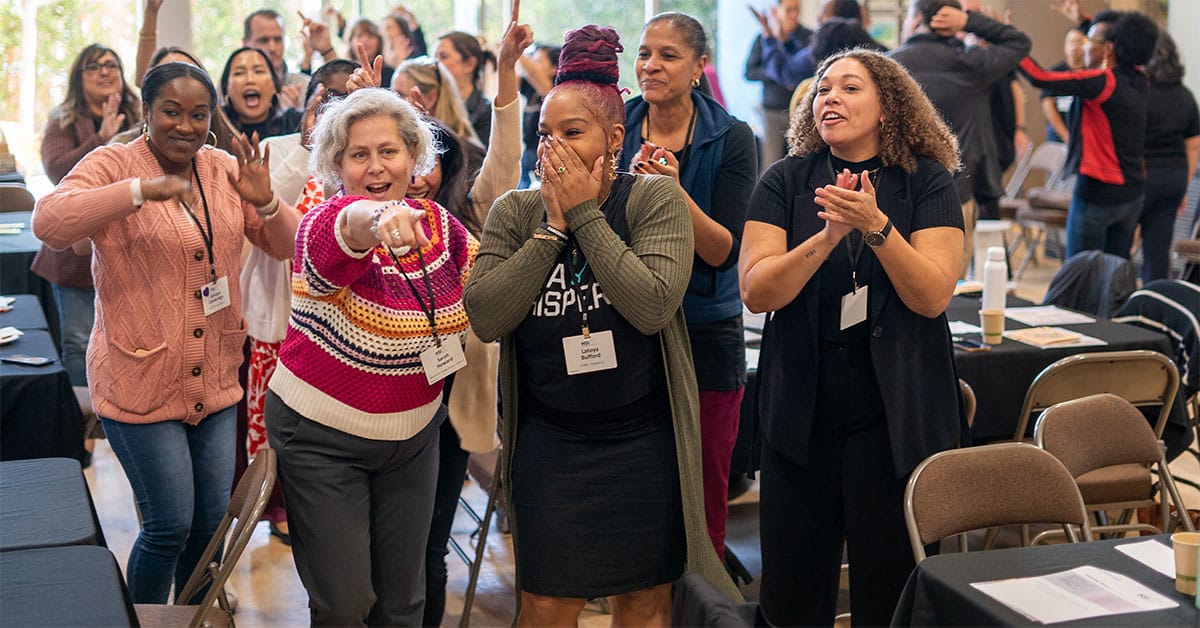
Perhaps you’ve heard about the New York Times best seller The 5 Love Languages: The Secret to Love that Lasts by Dr. Gary Chapman—the popular book that helps people improve their relationships by learning how their partner understands and welcomes love. You may have even used these ideas for your own relationships. But have you used them to build highly functional teams, improve intra-team dynamics, and strengthen collegial relationships?
The idea behind The 5 Love Languages is that people express and receive love in different ways. By learning to recognize the preferred ways in which people in your life understand love, you can better connect with people, and this can have profound impacts on all of your relationships, even at work and school.
According to Chapman, the love languages are:
In my personal life, I fell into a common love language trap. I love my partner, and logically, I knew that his love language was quality time, while mine was words of affirmation. Even though I understood this consciously, acting in my love language came naturally to me, but learning to speak his was a challenge. During dinner, I would check my phone for messages and emails while expressing how delicious the meal he spent hours cooking tasted—one of many ways that I delivered love through my language instead of his. My attention was divided, and although we were sitting at the same table together, I was doing a terrible job of giving him quality time.
At work and on a team, this happens often. We may think we are meeting everyone’s needs, but more often we are missing the mark. Understanding and addressing the nature of these relationship dynamics in professional contexts are the soft skills that great leaders use to build more integrated and highly functional teams that differentiate their approach to tap into what makes their team tick.
Continuous improvement in education requires adults to work together. To truly collaborate, they need to learn how to communicate effectively and offer meaningful support. Using the model of the five love languages helped us uncover different ways educators can develop more highly functioning teams and deeply engage in continuous improvement work.
We often think of love languages as static—set in stone like our zodiac sign or our refusal to read the terms and conditions. But in reality, love languages are dynamic, evolving with time, experience, and—let’s be honest—how much coffee we’ve had that day. It is essential to remember that we are all different—everybody is tuned to have different interpretations of the behaviors of those around them. So, a highly functioning team undertaking the important work of continuous improvement will learn to offer the differentiated and personalized support that their coworkers specifically need.
Let’s break down how an Improvement Coach—or any other school or systems leader—can approach educators in a way that offers support tailored to their specific love languages, improving intra-team dynamics and strengthening collegial relationships.
These are the types of practices that help colleagues say things like, “I love my job” and “I love my team.”
While some of these actions may seem above and beyond the scope of a coach, they are immensely effective for developing educational leaders who build highly functional teams with a great deal of shared investment in their colleagues. When we identify one educator’s love language as quality time, we plan to sit and review data, discuss, and action-plan together. When another educator values words of affirmation, we send a detailed visit summary highlighting direct “glows” with a few areas to strengthen after every visit. These two distinct actions support their respective love languages, creating a meaningful connection and enhancing collaboration and partnership.
Applying the love languages to continuous improvement for educators isn’t about labeling people or not letting them change—it’s about using a tool to tap into what motivates people to persist through challenges with excellence. As you embrace these various strategies with your team of educators, take stock and check in from time to time, as love languages can change. Typically, people understand love dynamically, and on a spectrum; they aren’t all-or-nothing. People generally fall into more than one bucket and most people value all of them to some degree—there is a big difference between a colleague who doesn’t need many words of affirmation and one who doesn’t need any (pro tip: it is not a good idea to assume someone is the latter!). While some people prefer specific gestures to affirming words, what really matters is to create a supportive environment where each team member feels valued, and to embrace the beautiful variety on your team. As a coach, we encourage you to become fluent speakers of the Improver’s Love Language so that you can help to support and motivate your team.
The RISE Network helps high school students graduate with a plan and the confidence to succeed in college and careers. Since 2015, RISE has partnered with Connecticut public high schools to use data-driven strategies that improve student outcomes. Working with nine high schools and eight districts, RISE has boosted graduation rates, postsecondary planning, and ninth-grade success while reducing achievement gaps. Recognized by the Carnegie Foundation in 2021, RISE continues to expand its impact through consulting partnerships with schools, state agencies, and nonprofits.
Tags: